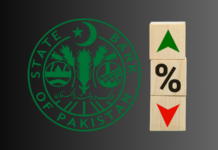In a Sector In-Depth report titled “Sovereigns – Global: B-rated sovereigns in APAC, LatAm and MENA most exposed to financing stress,” Moody’s Investors Service has identified countries that are most vulnerable to financial stress in the future.
According to the report, “fragile investor confidence amid a slowing global economy, ongoing US-China tensions, and political risks in the Middle East and elsewhere increase the risk of a tightening in financing conditions, with B-rated sovereigns in Asia Pacific, the Middle East and North Africa (MENA) and Latin America most exposed.”
The report states that In terms of debt affordability, Pakistan, Sri Lanka, Egypt, Angola, and Ghana would see the most significant deterioration in their interest payments-to-revenue ratios compared to Moody’s baseline 2019-20 forecasts.
According to the report, this worsening situation is driven by large gross borrowing requirements of between 15%-30% of GDP annually, as a result of relatively short average maturities of around five years and short term Treasury bills, on average, comprising over 30% of outstanding domestic debt.
Moody’s also highlights the effects of Pakistan’s IMF programme on the economy. “Pakistan’s external financing gap has been alleviated by a $6 billion, 39-month IMF agreement, along with other bilateral and multilateral borrowings providing an external buffer; however, external vulnerability remains high following years of wide current account deficits and a lack of substantial non-debt-creating FX inflows,” states the report.
“We expect that a more market-determined exchange rate and import compression will bolster foreign-exchange reserve adequacy against external debt repayments, still low levels threaten the ability of the government to refinance foreign-currency debt at affordable costs.”
The report also states that Pakistan’s fiscal profile has been further weakened by the higher interest rates following the central bank’s cumulative 750 basis point hike over the last two years in response to external imbalances. “With the frequent rollover of short-term Treasury bills, these higher domestic interest rates have rapidly increased the government’s borrowing costs.”

























